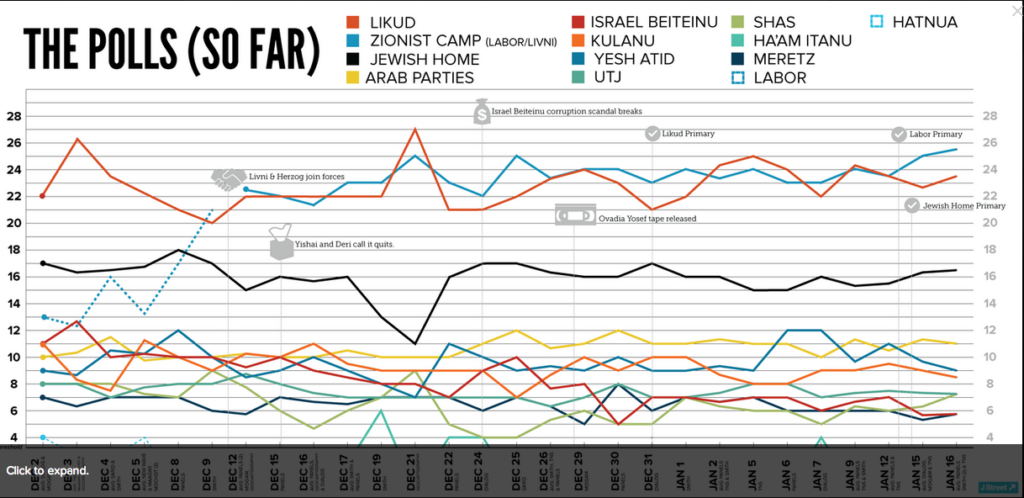Why Israel’s elections are confusing, in one graph
Published January 20, 2015
Polls show that either the right-wing Likud or a newly formed center-left alliance called the Zionist Camp is poised to win Israel’s March elections.
If only it were that simple.
ADVERTISEMENT
If current surveys bear out, Likud and the Zionist Camp will indeed compete for the most votes. But the one that wins the most seats in Knesset won’t necessarily lead the next government.
To understand why, take a look at this graph of Israeli polls created by J Street, America’s self-described “pro-Israel, pro-peace” lobby.
The Zionist Camp and Likud are clearly switching places in a horse race on top. Each is poised to get 20-25 seats. But really, the election will be decided by the parties below the Likud-Zionist Camp double helix.
Because Israel has a coalition system, the elections’ magic number is not 25 but 61 — a majority of the Knesset’s 120 seats. No party in Israel’s history has ever gotten that many seats, so parties band together in governing coalitions based on common interests to form a majority.
Take a look, for example, at the black line running below the Likud-Zionist Camp race, but clearly above everyone else. That’s Jewish Home, the hawkish, pro-settler party that would join only Likud, and not the Zionist Camp. That means that when Likud tallies a potential coalition, it can add on the 15 or so seats Jewish Home is poised to win.
And that means that to beat the Likud-Jewish Home alliance, the Zionist Camp will have to dive into that jumble of parties on the bottom for coalition partners. To get to 61, so will Likud. The way those small parties choose to swing will determine Israel’s next prime minister.
That’s why Israel’s election is so confusing. The real race takes place at the bottom of the graph as much as at the top. Will Israel’s haredi Orthodox parties swing left in a political deal? Or will the centrist parties lean to the right, which is what happened in the last government?
Those are the questions Israeli election observers are asking. They’re interested in the chaos at the bottom, no matter which party gets the most votes.
![]()















